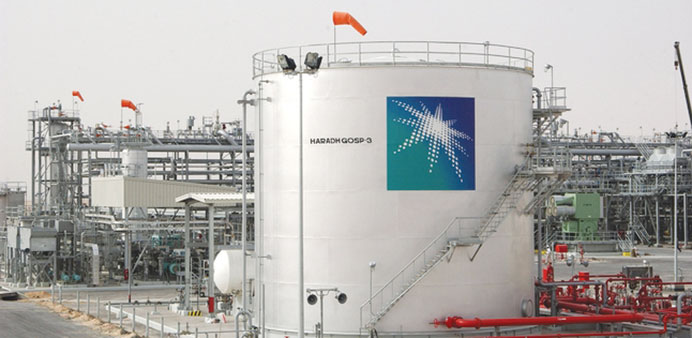The first phase of Saudi Aramco’s South Dhahran project is expected to be completed by 2018, while the rest will be finished by 2024.
Bloomberg/Dubai
Saudi Arabian Oil Co is seeking partners to help build commercial properties in a 10,000-home project as the state-owned crude exporter takes a direct role in constructing accommodation for its employees.
The company is contacting developers from the US, Europe and other regions to build and run a mall and hotels in the South Dhahran Home Ownership project, said Michael Heitmann, head of strategic consulting in Middle East and North Africa at Jones Lang LaSalle Inc.
Saudi Aramco is taking a more hands-on approach to building homes for its workers after a strategy of giving out land for individuals to develop wasn’t successful, according to Heitmann and Craig Plumb, head of Middle East research for JLL, which is helping the company locate partners.
“Some people were taking the plots and leaving them so you’d end up with roads and street lights but no homes” as people waited for the project to gather momentum, Heitmann said in an interview on Monday in Dubai.
Saudi companies with large numbers of foreign employees tend to house workers in compounds for reasons of security and convenience. The availability of such accommodation can affect a business’s ability to compete for staff.
A Saudi Aramco official in Dhahran didn’t respond to e-mails seeking comment. A spokesman wasn’t able to immediately comment when reached on his mobile.
JLL expects to receive responses soon from international developers approached to help Saudi Aramco develop a 240,000 square-metre (2.6mn square-foot) shopping mall, a souk market, three business hotels and gas stations in the country’s Eastern Province, Heitmann said. JLL approached international developers in the US, Germany, the UK, Italy and China, he said.
The first phase of the project, about 3,000 homes, is expected to be completed by 2018, while the rest will be finished by 2024, he said.
Saudi Aramco is also planning to build an industrial city in Al Ahsa on 50 square kilometres of land also in the Eastern Province, which will be focused on attracting energy related companies.
The city is set to include universities, labs and a dry port connecting to the railway as well as homes, offices and some retail, Heitmann said. JLL is advising on the project’s master plan and is a management consultant on it, he said.
“It’s another way to diversify away from oil,” he said. It will take 15 to 20 years to complete the project, which is “geared to energy including solar and other forms.”
Saudi Aramco Dow Chemical $20bn plant to start in 2015
Bloomberg/Dubai
Saudi Arabian Oil Co and its partner Dow Chemical Co plan to start production this year at their $20bn Sadara chemicals joint venture as other projects being planned in the region face the obstacle of falling crude prices.
Ethylene and polyethylene will be the first products of Sadara Chemical Co, Khalid al-Hamid, manager for engineering and technology, said in Dubai. Full output is set for late 2017.
Saudi Arabia, the world’s largest crude exporter, started the petrochemical project in 2011 when oil averaged $111 a barrel. Prices have since slumped about 45%. Qatar Petroleum and Royal Dutch Shell ended plans last month to build a $6.5bn petrochemical plant, saying it was “commercially unfeasible” in the current energy market.
“Middle East chemicals projects are facing stiff review,” Sanjay Sharma, vice-president for Middle East and India at Englewood, Colorado-based IHS Inc, said in an interview in Dubai yesterday. “Industry does not need to react to the short-term swing and needs to look long-term for projects as the market will return.”
Brent crude has rebounded 8.4% this year to $62.16 a barrel after falling almost 50% last year. Oil prices “will be corrected” by the time Oman Oil Refineries & Petroleum Industries Co starts a $3.6bn Liwa plastics plant in 2018, Henk Pauw, general manager of the project, said in Dubai yesterday.
Middle Eastern petrochemical plants, which use natural gas, are becoming less competitive than plants that use oil after crude prices declined, Sharma said. Chemical prices are also falling because of lower oil prices, he said. Sadara will be the first plant in the Middle East to use naphtha, a refined oil product, al-Hamid said.
Saudi Arabia is boosting capacity to refine oil and produce chemicals to meet domestic fuel demand and make materials used to manufacture consumer goods. The kingdom plans to build refineries and chemical plants to help diversify the economy and reduce dependence on crude exports.

